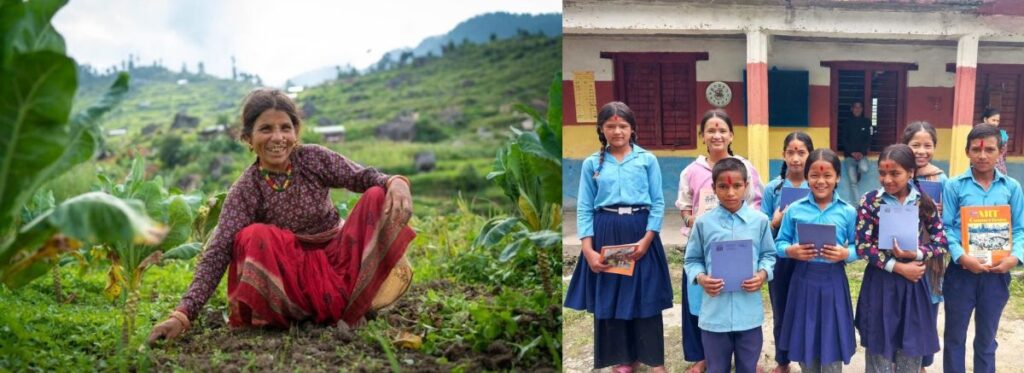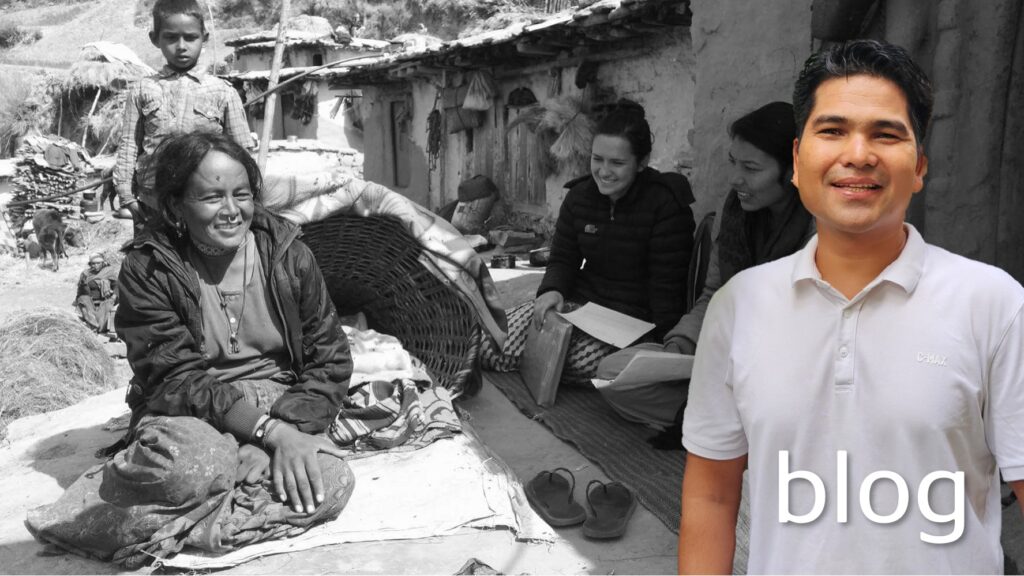Empowering Rural Lives-
The remote location of the Oda village poses challenges in accessing healthcare and quality education in Kalikot, Nepal. The death of Karan Singh’s father due to lack of access to medical care forced Karan to quit school as a young child and work as a dish washer in India to support his family. In 2013, he turned his mom’s cowshed into a clinic, and later, with villagers’ and government support he built a hospital and eventually a school. The Oda Foundation’s aim is to improve rural lives in Kalikot.
By Karan Singh
Nestled in Nepal’s Karnali region, the village of Oda is incredibly beautiful, surrounded by rivers and mountains. People live in mud houses which harmoniously blend in with nature. The village thrives on unity and harmony. This is my village. Oda is in the Mid-Western part of Nepal, about 150km away from the Indian border and 388km from the capital city of Katmandu.
A Father Lost, A Mission Found: Karan Singh’s Journey
Despite its natural beauty, its remote location and inaccessible roads hinder access to health facilities and good education. When I was just 10 years old, my father fell ill with a fever. My mother tried all local remedies, but to no avail. We decided to send him to the hospital which was a four day’s walk away. I wanted to accompany him, but my father chose to go alone as it was a long journey.
Later we came to know that he had to go to India to make money to pay the medical bills.We waited, hopeful, for his return in good health, but he never did. Two years later, we learned from Bhim, a fellow villager who had returned from India, that my father had passed away there from pneumonia. Those two years were very difficult, waiting for a father who never returned, while my mother and I tirelessly worked in the fields, earning our livelihood. Life became tougher without my father.
Illuminating Lives: Karan’s Path from Darkness to Light
After fifth grade, there was no money to continue. So, I quit school to support my family. We sold my mom’s bangle, and I accompanied one of the uncles from the village who was going to India. We walked for four days to the nearest town and took a bus to Devprayag, India, where I got a job as a dishwasher.

Oda Foundation: A Cowshed-Turned-Clinic That Grew
I was astonished when I saw a light bulb for the very first time. At the age of 14, I was able to earn 1200 Nepali Rupees monthly, but I missed my family back home. One day I met a few people who were on a rafting expedition. They offered me a job, and I eagerly accepted.
I became a rafting guide and later became the manager of the company. Annually, I got time off from the company and visited my family back in Oda. During these visits, I always brought along medicines for our neighbors, and bags and books for the children in our village, especially for the little ones who faced similar challenges as myself. All this while, I wondered, how I could improve the lives of the people of my village.
Building Bridges to Health: Oda’s 24/7 Healthcare Revolution
In 2013, a dream came true. I met John Christopher, who was volunteering in Nepal for a couple of years. I took him to my village, where he became sick and where he learned firsthand the importance of proper health care.Later he became my co-founder. Together, we turned my mother’s cowshed into a medical clinic with a pharmacy and outpatient department. We also hired a medical professional. Our community was very happy to have medical help close by. The village now had what my father didn’t. Later that year, we founded the Oda Foundation.
In 2016 the villagers came together and collectively donated land. Together, we built a hospital, collaborated with the government, and now we offer 24/7 healthcare, including a birthing centre. This has saved many lives.
Empowering Rural Lives-Bridging Gaps in Healthcare and Education
Education also became a priority. I didn’t want other children to have to quit school as I did when my father passed away. In 2017, we took over a non-functioning school and transformed it into a fully operational one. We equipped the school with learning materials and teachers. Presently, it accommodates 450 students and employs 19 teachers. Our goal is to replicate this success in other schools across Kalikot. We’re committed to making life better for rural people. We want to support them with good health and education, which are the basic rights of all humans.
Know more about the fellow participant of karan singh visit link



